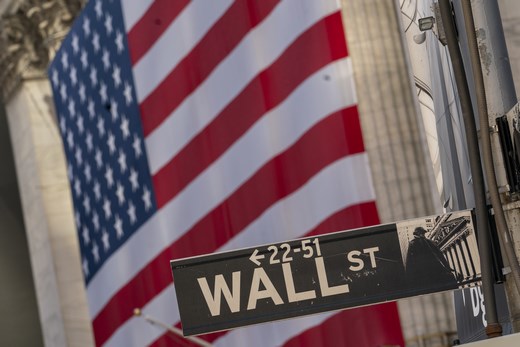
The sliding Bitcoin price has an "end of the party" feel to it. After a period when the US economy has charged forward, SPACs have been raising cash, alternative currencies have soared and unprofitable technology companies have seen vast share price expansion, the weakness in the world’s most high-profile crypto might serve as a warning: the US has reached peak recovery.
Certainly, the markets appear to think so. The S&P 500 dropped 1.4% in just three days as it has digested the 4.2% inflation print in mid-May. Former US treasury secretary Larry Summers has vocally condemned the Federal Reserve’s "looser for longer" approach, saying the central bank is storing up trouble in allowing asset bubbles and inflation to take hold.
Has the US Peaked?
Felix Wintle, manager of the Tyndall North American Fund, says: “We certainly live in a time of extreme data. The US economy is currently experiencing its highest level of growth since the second world war, and inflation is also giving us readings that are way higher than most investors have ever seen in their lifetime. Coupled with this is the many trillions of dollars that have been printed and distributed by the Government to support those affected by the pandemic.”
However, he believes there should be plenty more Dollars to come to support recovery: he points out that US consumers are emerging from the recession in better shape than they went into it. Richard de Lisle, manager of the VT De Lisle America Fund, says: “The US recovery seems back-end loaded to us and is just getting started, so will last a long, long time. The bit we’re focused on is the infrastructure plan, which is all about building roads and bridges over the next eight years.”
The question is whether higher inflation forces the hand of the Federal Reserve, as Summers predicts, pushing a snap rise in rates and an economic and market shock. De Lisle is not worried: “We don’t expect inflation will dampen growth given that savings rates are a record high, there is a pledge by the Fed to keep rates lower for longer and there is a post lockdown behavioural change in the desire to spend.”
A Roaring Twenties?
He believes the US economy may be on the cusp of a "roaring twenties" and consumers may prove relatively immune to higher prices: “There won’t be much price sensitivity about this spending, as we’ve already seen in the housing market. This lack of price sensitivity and exuberance of a return to new life will not be impacted by inflation numbers which are anyway expected to be short-term in nature and have not fed through with much rigour to inflationary expectations which remain low. It takes decades to build up decent demand-pull inflation and these cost-push bottlenecks won’t do it.”
However, even if the US economy is only in the foothills of recovery, it doesn’t mean that it will be good news for the stock market. James Spence, managing partner and portfolio manager of the Cerno Global Leaders fund, points out that valuations have seen unprecedented expansion as bond yields have dropped: “Markets have had 37 years of valuation gains based on falling bond yields. Whether there is inflation or not, today we have the prospect of rising bond yields. Investors can’t rely on valuation gains from here, so there is a clear negative in that column."
He adds: “While it is right to be optimistic on growth, there will be a disparity between the economy and financial assets. Bonds and equities have gone up together and it is a long time since anyone expected anything different.”
A Bad Time for Index Investors
It won’t be a good time to be an index investor, says Spence, who thinks the tech sector’s run of luck is over. Scott Spencer, fund manager at BMO Global Asset Management, agrees that growth stocks in general have probably had their moment: “When we look at the Goldman Sachs index of technology companies that don’t make a profit, it has outperformed both the S&P and the FANG index." He says that along with non-profitable tech, there has also been strong performance from non-profitable IPOs in 2020. Indeed, 80% of the companies that went public did not make a profit in the 12 months prior to their listing, but their 2020 returns were still over 100%. He adds: "2020 will go down as one of the best years ever for growth investing.”
"Value" options offer more compelling valuations but are a smaller part of the index in the US. That said, Spence cautions against going full value, given recent performance and that some value sectors, such as energy and financials, are quite challenged. Spencer is maintaining an underweight position in the US across the BMO portfolios given the overall value of the market. Where they do hold the US, they are retaining a value bias, though this has reduced somewhat after recent strong performance.
Meanwhile, De Lisle is prioritising those stocks that can benefit from behavioural change such as Build-a-Bear (BBW) and Sally Beauty (SBH) and is also positioned in “long-forgotten” commodity-related plays such as Friedman Industries (FRD) and Synalloy (SYNL).
It may not be the end of party for the US economy, but there is certainty some change ahead in the US stock market. Investors are likely to see a growing disconnect between a tougher stock market environment and buoyant economic figures. Returns will be harder won from here.


























